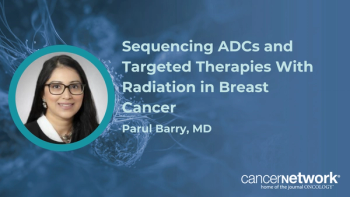
Breast Cancer Patients With Mental Illness Face Higher Mortality Risk
Elderly breast cancer patients with severe mental illness had a twofold increased risk of all-cause mortality compared to those without mental illness, according to a new study.
Elderly breast cancer patients with severe mental illness had a twofold increased risk of all-cause mortality compared to those without mental illness, according to a new study. Breast cancer–specific mortality risk was also increased, though not significantly.
“Although the literature seems to support a positive association between mental illness and mortality among patients with breast cancer, only one known study used a competing risk analysis to study the effects on breast cancer–specific mortality, and few studies have examined the effect of specific pre-existing mental health conditions on survival outcomes,” wrote study authors led by Melissa L. Santorelli, PhD, of Rutgers School of Public Health in Piscataway, New Jersey.
To fill those gaps, the researchers conducted a retrospective cohort study using SEER–Medicare data; it included 19,028 women aged 68 years or older who were diagnosed with stage I to IIIa breast cancer between 2005 and 2007. Severe mental illness was defined as having a diagnosis code for bipolar disorder, schizophrenia, or other psychotic disorders during the 3 years prior to a breast cancer diagnosis. Results were
There were 496 patients with severe mental illness, and 15,233 without mental illness; 1,151 patients had anxiety, 1,465 had depression, and 683 had both those diagnoses. The patients were followed for up to 5 years after breast cancer diagnosis to assess the survival outcomes.
The cumulative incidence for all-cause mortality was 38% in those with severe mental illness, compared with 19.4% for those without mental illness (P < .001). For breast cancer–specific mortality, those rates were 7.2% and 6.2%, respectively (P = .1223).
The researchers conducted an adjusted analysis for mortality risk, accounting for age, income, race, ethnicity, SEER location, and marital status. After those adjustments, those with severe mental illness had a hazard ratio (HR) for all-cause mortality of 2.19 (95% CI, 1.84–2.60) compared to those without mental illness. For breast cancer–specific mortality, the HR was 1.20 (95% CI, 0.82–1.74).
Those with anxiety did not have a significant increase in mortality risk, with an HR for all-cause mortality of 1.06 (95% CI, 0.90–1.25) and for breast cancer–specific mortality of 0.94 (95% CI, 0.70–1.26). For depression, the risk was increased, with an HR for all-cause mortality of 1.39 (95% CI, 1.22–1.58); for breast cancer–specific mortality, the HR was 1.09 (95% CI, 0.86–1.39). For those with both anxiety and depression, those two HRs were 1.26 (95% CI, 1.03–1.53) and 1.27 (95% CI, 0.92–1.77).
The authors noted those with severe mental illness were diagnosed with later-stage breast cancer more frequently, suggesting that delayed diagnosis may play a role in the increased mortality risk. Those with severe mental illness also had higher rates of tobacco use, and more comorbidities.
“Primary care physicians must place an emphasis on early detection among women with severe mental illness to improve the likelihood that guideline-recommended screening mammograms occur,” the researchers concluded. “They also should work closely with psychiatrists and oncologists on the coordination of care for these patients.”
Newsletter
Stay up to date on recent advances in the multidisciplinary approach to cancer.







































